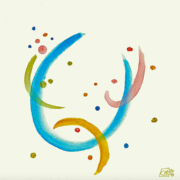Introduction “Roman days of multi family psychoanalysis”
Presenting the work on multi-family psychoanalysis exposed during the Roman Days of Multi-Family Psychoanalysis is a source of great joy and pride. It’s been a while since a small group of mental health workers decided to organize three days of perer confrontation and exchange with professionals from different places in the world.
Andrea Narracci, Claudia Tardugno, Federico Russo, Luciana De Franco and Fiorella Ceppi were the people who decided to work for the organization and implementation of this project. The idea was to organize a meeting that could make an overview, sharing the state of the art in the fast growth scenario of the Multifamiliar Psychoanalysis, stimulating an exchange between experiences in progress and telling each other what and how we are doing and the impact on the professional contexts in which each one operates.
An international point of view to reflect on how the multifamily psychoanalysis, born in Buenos Aires between the end of the 50s and the 60s thanks to the work of dr. Jorge Garcia Badaracco, has developed and, slowly, has activated the interest of mental health workers in various countries of the world. The meeting that took place during the Roman Days of Multi-Family Psychoanalysis saw the creation of a space that gave voice to the various national, international and also intergenerational experiences.
An enriching exchange in which the composed micro society worked for three days on mental health, from the operators to the patients, passing through the training.
“Vengo a escuchar y aprender, como que escuchando y aprendiendo podremos curar al paciente mucho mejor que creyendo que tenemos que aplicar un conocimiento” (Garcia Badaracco, La mente cerrada 2009), this is the guiding thread of the organization: an opening to the another, a willingness to listen, the desire to know and understand what the other does and how he does it, in an unsaturated environment.
Today we want to accompany the reader, taking up this phrase as an opening to the journey that is about to immerse the reader in this experience of heterogeneous reading in which theory and experience intertwine and articulate, following the processes of each author but catching the articulation between everyone.
The articulation … that ability to which Garcia Badaracco refers describing the relationship between a family and the other, an articulation that brings out the richness of similarities, differences but also contradictions, in order to generate new, individual organizations and family members, in the case of families participating in the MF group, but also new discoveries and individual, social and labor organizations in the case of operators taking part in an exchange of this kind.
Articulaciones called them, with the curious eyes of those who discover something for the first time, and after all for him it was a bit like this: The most significant changes are born as something absolutely amazing, “something unexpected”, as if “the most authentic “of each of us was also the” most unknown “thing of ourselves”, so that its appearance in the scene can only be a surprise. (Jorge Garcia Badaracco, De Surprise in Surprise, 2006). The birth of the Multifamily Psychoanalysis was a surprise as well as a gamble. Garcia Badaracco worked in the Argentine psychiatric hospital, in a context in which there were a large number of patients and few operators. This situation led him to deal with a “spontaneous framing” something very complex; he gathered the patients every day at the same time, after a while he decided to invite the parents too. It starts like this the experience of Multifamiliar Psychoanalysis, the integration of concepts belonging to several theories, from psychoanalytic to systemic theory, integrating concepts of cognitive theory and providing data from human sciences, from philosophy, a whole that composes the scheme of Articolaciones where every concept is related to others.
Today we look at the discoveries made and we are curious about new ones, multi-family psychoanalysis has developed the study of psychosis (from which it started), of families, of relationships, but looks at society, prevention, broad-spectrum well-being. From Roman days till today we have had many experiences, we recognized as a group with the birth of the Italian Laboratory of Multifamily Psychoanalysis (LIPsiM) always keeping alive the continuous exchange with other countries that over the years has brought a continuous growth, scientific and human wealth.
Today we are present in many countries, in Italy there are groups of PMF active in various DSM and in the italian private-social organizations. This expansion has allowed us to see that thanks to the PM, not only work is done with patients and families, but operators are allowed to have a therapeutic and training experience. It creates a climate of greater collaboration and exchange within the work environment, as well as a new way of thinking about suffering and looking at the patient and his family. The PMF intervenes at various levels both on the patient and on the family, on the operators and on the institution. The intuition had by Dr. Garcia Badaracco today allows us to use a method that responds to the needs not only of care but also of expenditure (individual, social and institutional). At the last conference of Multifamily Psychoanalysis organized by LIPsiM (Rome, 2016) were presented data and work on how the PMF acts on patients, operators and people, the interested reader will find the publications of the works (Tra il dire e il fare, esercizi di Psicoanalisi Multifamiliare, nella collana del Vaso di Pandora, Vol. XXV- N.2-2017 Ed. Erga, e La Psicoanalisi Multifamiliare e il cambiamento: istituzioni, operatori, persone, in Interazioni N2-2017, Ed. Franco Angeli).
We have seen that today complexity can be approached in a different context, a place in which the split parts can be integrated, something that was not livable can be made, prevention and maintenance of a continuous therapeutic and training process, allowing the sharing of the madness that, if shared, can stop being madness taking on space, meaning and time.



